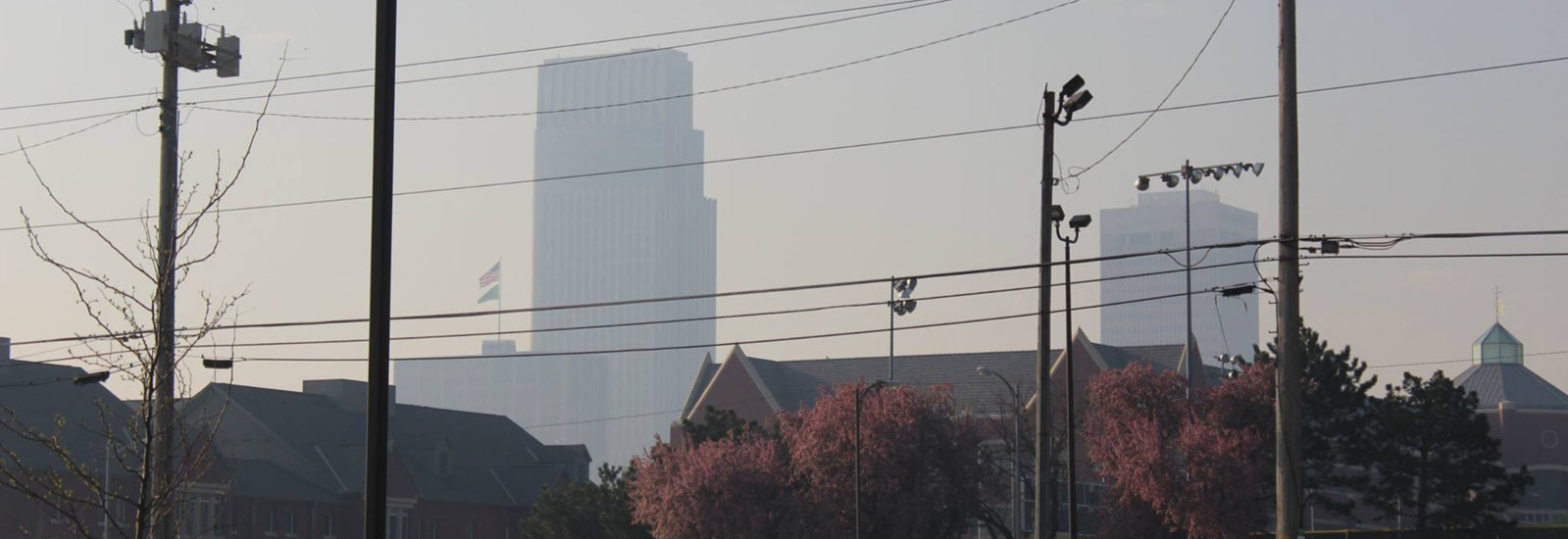If you or a loved one has asthma, dodging flair ups may be a part of your day-to-day routine. We know air pollution can trigger existing asthma, but did you know that the development of asthma can actually be caused by air pollution?
Research links air pollution to asthma development
According to the American Academy of Allergy, Asthma & Immunology, prenatal exposure to air pollution has been shown to increase the risk of wheezing and asthma development in children. This finding was found to be true whether or not the expectant mother had asthma herself. Air pollution caused by vehicles is associated particularly with school children developing asthma.
While children are particularly vulnerable to developing asthma, new-onset asthma can happen in adults, too. There’s an increasing amount of evidence, suggested by Michael Guarnieri, MD and John R. Balmes, MD in their article on Outdoor air pollution and asthma, that long-term exposure to air pollution, especially traffic-related air pollution and nitrogen dioxide, can impact adults. More research is still left to be done, but each article points toward a single solution: we must improve our air quality or face community-wide health risks.
Improving air quality improves quality of life
Air quality in the Omaha-Concil Bluffs metro isn’t just an environmental issue, it’s a community issue. The worse our air quality is, the more it affects the lives of people with existing asthma or those who are likely to develop it. The health of people like Elsa, a nine-year-old resident of Omaha, can change quickly and dramatically due to the air quality of her environment.
Air quality doesn’t just impact random individuals. It can alter the health of entire neighborhoods. In many cities, the most affordable homes often are near areas with the heaviest traffic. This can cause certain neighborhoods to have heightened health issues due simply to their proximity to vehicle emissions. And if residents have low income, they are less likely to have access to the care and resources they need to manage asthma, which reinforces cycles of health disparities.
How you can reduce your traffic-related emissions
There are little steps we can take today to increase the air quality, and health, of our metro region. When we all commit to these personal changes, it can make a big impact and create cleaner air. Take our pledge to make little changes in your life and try out some of the suggestions below to help improve our air quality.
- Use public transportation. The new Omaha Rapid Bus Transit (ORBT) along Dodge Street is faster, more reliable and easier than ever to ride.
- Opt for a bike, rentable scooter or walking if your destination is within a mile.
- Turn off your car while waiting in line in the drive-thru or at school. This will reduce the amount of exhaust wafting around vulnerable children.
- Plan out your errands. If you need to make multiple stops, make sure you take the most efficient route possible.
- Fill your vehicle with cleaner-burning, renewable biofuels like ethanol and biodiesel blends to reduce greenhouse gases by 42% and remove toxic tailpipe emissions from the air. Vehicles 2001 and newer can use E15, and flex-fuel engines can use any ethanol blend.
- Avoid buying and shipping single items. Is the item you need stocked at a local store you visit regularly? Wait until your next trip!
- Make sure your engine is tuned, your tires are inflated properly and your vehicle is in good working order to ensure maximum efficiency. The better your engine is operating, the more efficiently it will burn gasoline (and the less emissions it will produce).
